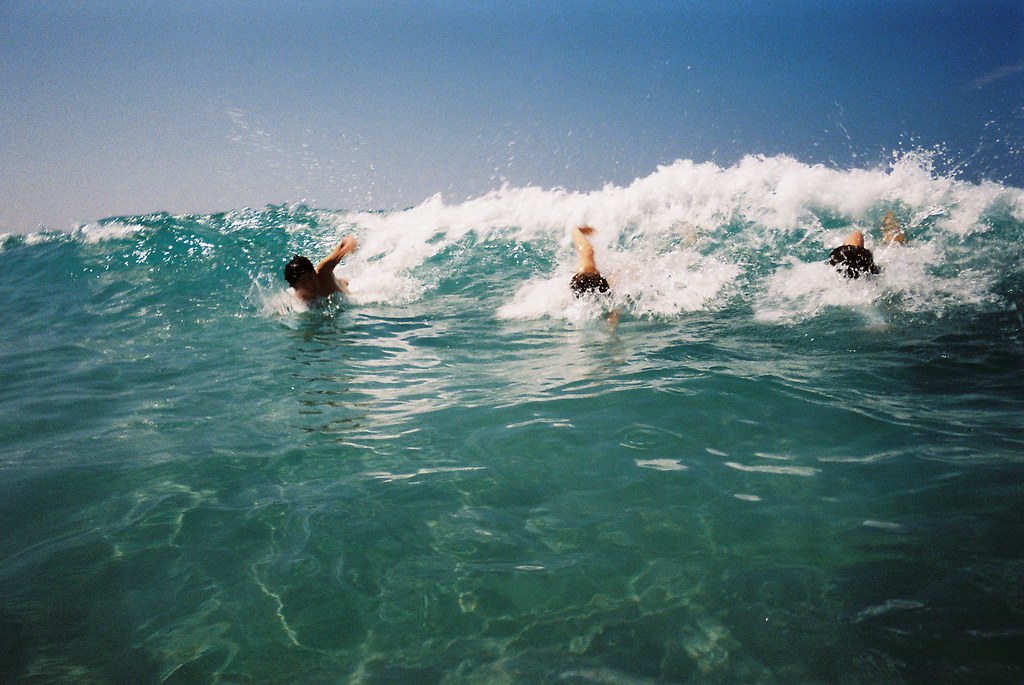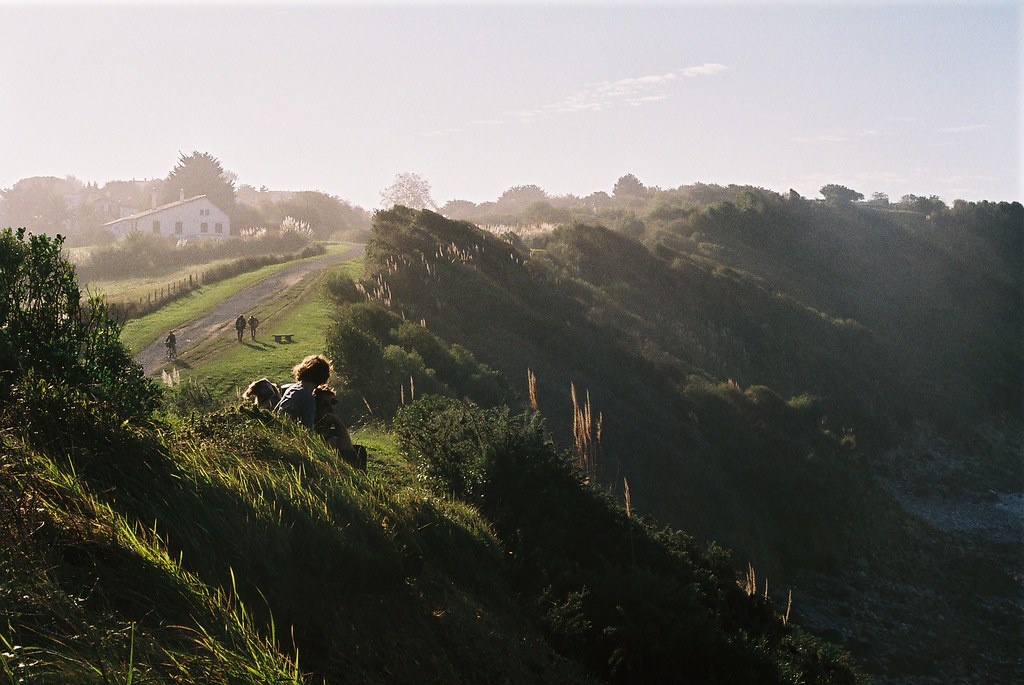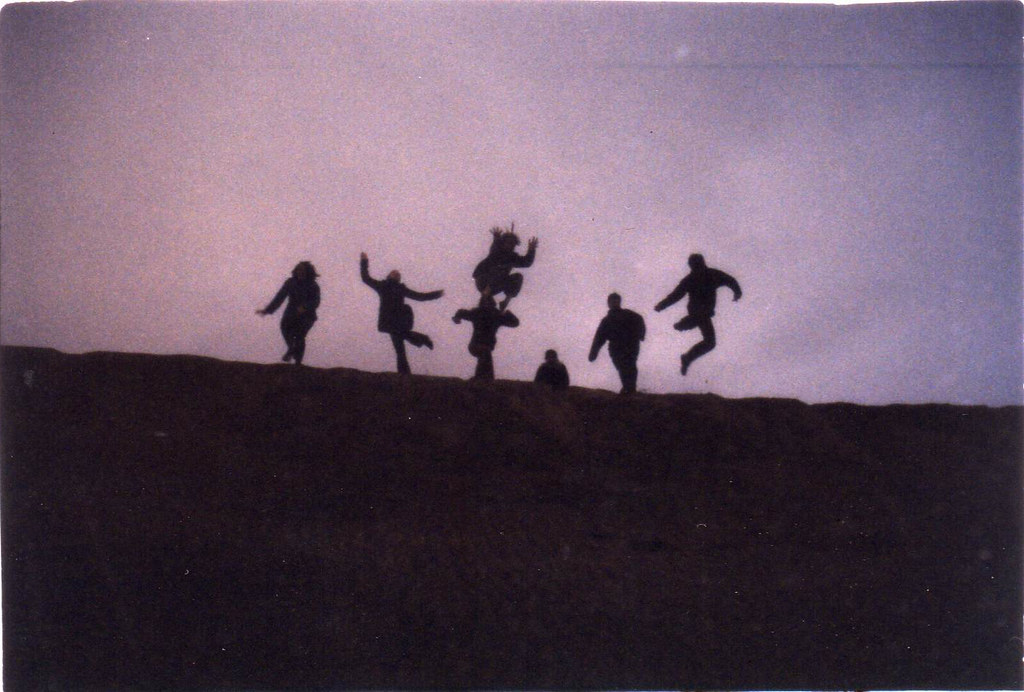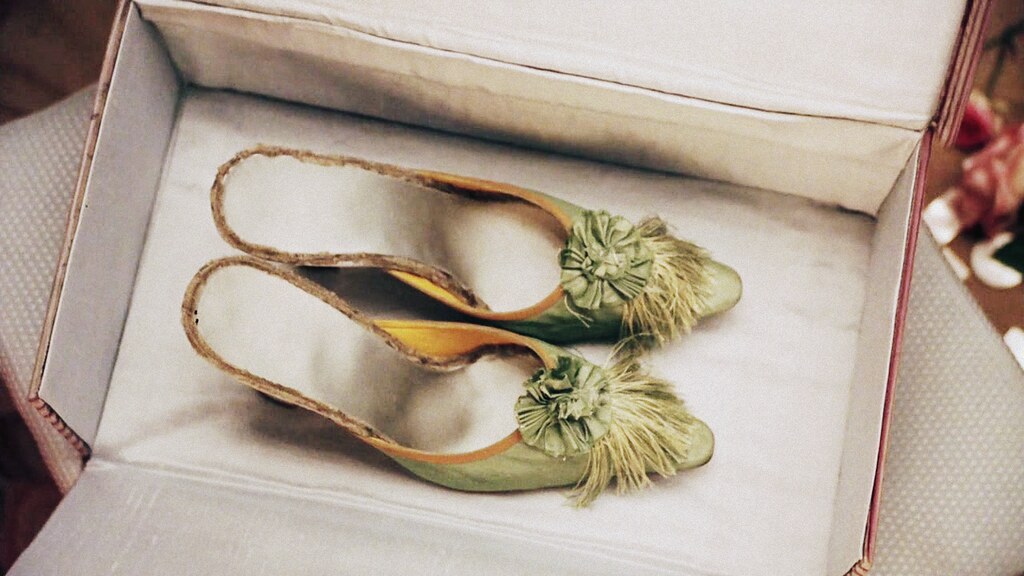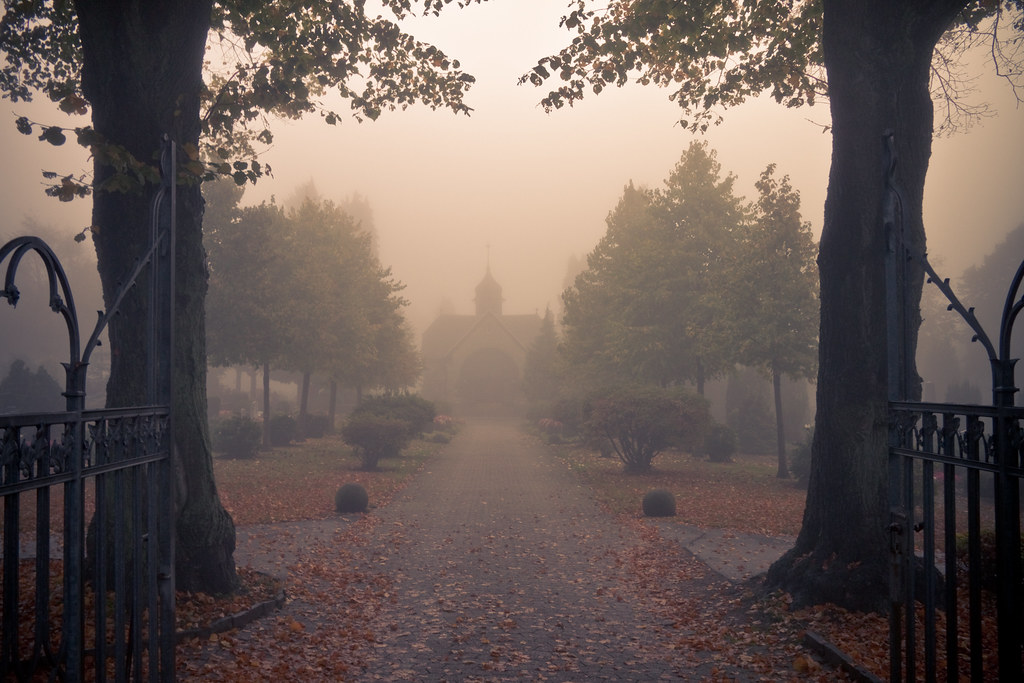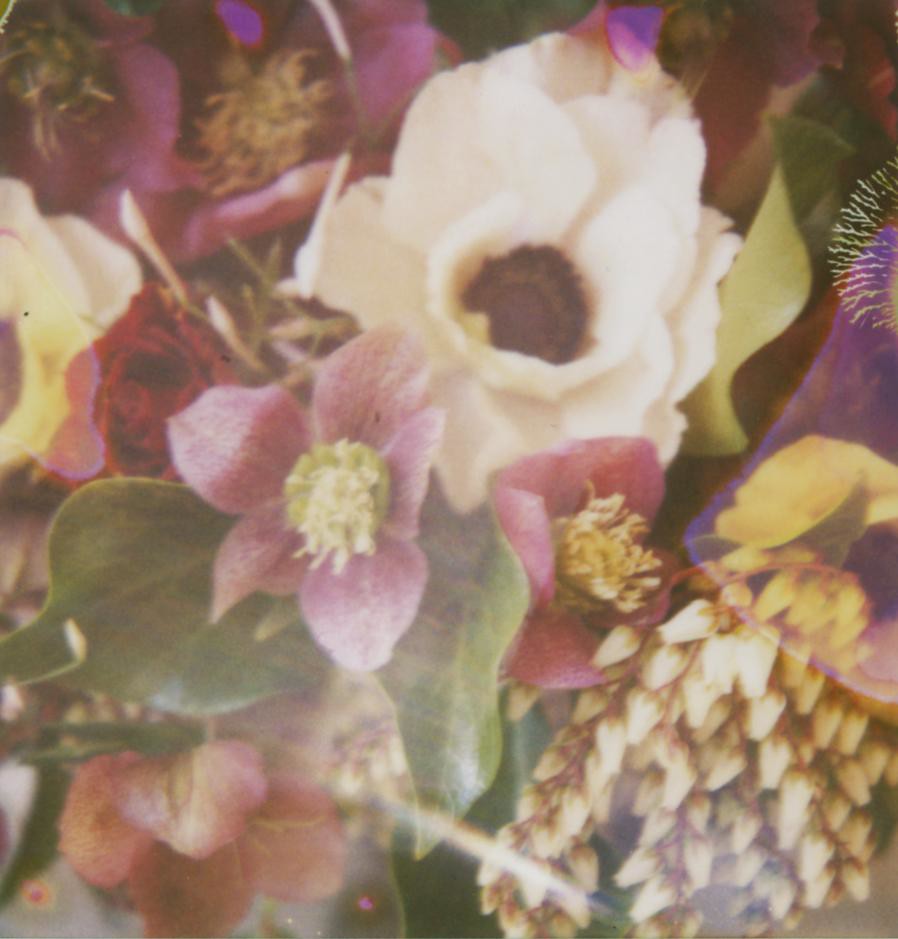by Richard Siken
Thursday, 31 May 2012
Wednesday, 30 May 2012
final days
I graduate on Saturday.
Yes.
I don't think I've ever been freer than this.
I don't think I've ever been more terrified. I am scared shitless.
These past few months have slipped by and suddenly we're on the cusp of summer. The maple outside my window has leaves of rich green. The lilies of the valley hang their white heads at the side of the road.
This spring was slow and grey and I still haven't cast off my winter skin. I'm pale and I haven't yet dipped myself in the achingly cold sea. Have I told you about the sea climbing into the lap of Helsinki?
I surprise myself over and over with this ability to bounce back. I never knew myself to be this defiant, this capable of lifting up my chin as if begging failure to throw another punch. It's fantastic. To be quite frank.
(I promise to tell you about my two days in Auschwitz and Birkenau and my single day in Krakov. I promise to write about my plans for the summer and for my gap year. I promise to write about my feelings regarding my gap year. These are the things I need to write about.)
Tuesday, 22 May 2012
what we're afraid of when we talk about anne frank
Last week I went on a school trip to Auschwitz Birkenau. This is my final essay of the course (and also my final essay written for school ever). I thought some of you might enjoy this. Here goes.
What We're Afraid of When We Talk About Anne Frank
"Because of a religious education, my sister and I were raised
with this idea of a looming second Holocaust. We would play the
Who Will Hide Me game, or the Righteous Gentile game."
Nathan Englander (Guardian Books Podcast: Anne Frank, 24.2.2012)
"No, it's not a game. It's just what we talk about when we talk about Anne Frank."
Nathan Englander: What We Talk About When We Talk About Anne Frank (Knopf, 2012)
In the short story, two Jewish couples engage in a macabre thought experiment: in the case of a second Holocaust, who would protect their family. Who would hide them, bring them food, who would face the risk of death for their sake?
I had been thinking for quite a while about my feelings regarding the Holocaust, this interest bordering on the obsessive, this umbilical cord I've built between myself and the victims. It is of course understandable that Western culture keeps returning to the Holocaust in art and in research. But what about it reels us in, us as individuals? Why do we flock to cinemas to watch the latest Holocaust film, why do we keep reading the latest books and articles? Why do we keep talking about Anne Frank?
According to author Nathan Englander, we treat the Holocaust as a symbol. ”What we’re talking about today is the legacy of the Holocaust, the idea of it. It’s not just that there’s the historical thing, the genocide; there are these pathologies behind it, this idea of how fear works. People were comfortable in Berlin and in Paris [during the Second World War]. Your world can snap at any time and just become a world of betrayal.”
The Holocaust has become the ultimatum of our capacity for evil, ground zero for immorality. We use it as a measuring stick for our own moral integrity. This comes down to two questions that we could call games if they were not so endlessly serious. We have Englander's question of who would save us, and we have the possibly more dangerous one: who would we save, and would we really?
And in the end, it is not about who would help us, but about who would not. It is not about who we would help, it is about the possibility of remaining passive, of being a silent witness -- and worse still, of becoming a perpetrator, a killer.
Talking about the Holocaust hands us anger, fear and sorrow. These are the feelings we acknowledge. There remains a feeling we rarely address, a feeling that hides so deep within us we rarely notice it: guilt.
When we talk about Anne Frank, who has become a symbol of purity and innocence, despite her unabashed mischievousness, we feel the same secret guilt. We fear our own darknesses, our own weaknesses. We fear the way we cling to our safety, our loved ones, our comfort and our routines, over helping the persecuted. We fear the version of us who avoids the gaze of the homeless man asking for money, who stays silent when a person of colour is treated to a round of verbal abuse on the bus, who does not join Gay Pride parades, who cannot converse casually with a physically disabled person. We look at the smiling young girl in the black and white photograph, and in her eyes we find an accusation we have no answer for.
I do not know if there are people in the world for whom being good comes naturally. I do not think so. Doing the right thing is a choice. The Righteous among the Nations recognised in their reflections their capacity for evil, they looked their own darknesses in the eye and turned away. There are no good people. There are only those who are courageous and honest enough to do the right thing, and those who are not.
It is dangerous to think of people as either good or bad. It is just as dangerous to use the Holocaust as our moral thermometer. Remembering the Holocaust is vastly important, but we should not let it overshadow the discrimination and the disadvantaged of our time. It is too easy to repeat the mantra of Never Again and neglect our mistakes and our hidden persecution. It is too easy to light candles at Holocaust memorials, to read Anne Frank's diary until the pages crumble, to cry furiously during the end credits of yet another film, it is too easy to beg for forgiveness for sins we have not committed. We have the responsibility of recognising the sins of our time, so that the generations to come will not have to feel our guilt.
I had been thinking for quite a while about my feelings regarding the Holocaust, this interest bordering on the obsessive, this umbilical cord I've built between myself and the victims. It is of course understandable that Western culture keeps returning to the Holocaust in art and in research. But what about it reels us in, us as individuals? Why do we flock to cinemas to watch the latest Holocaust film, why do we keep reading the latest books and articles? Why do we keep talking about Anne Frank?
According to author Nathan Englander, we treat the Holocaust as a symbol. ”What we’re talking about today is the legacy of the Holocaust, the idea of it. It’s not just that there’s the historical thing, the genocide; there are these pathologies behind it, this idea of how fear works. People were comfortable in Berlin and in Paris [during the Second World War]. Your world can snap at any time and just become a world of betrayal.”
The Holocaust has become the ultimatum of our capacity for evil, ground zero for immorality. We use it as a measuring stick for our own moral integrity. This comes down to two questions that we could call games if they were not so endlessly serious. We have Englander's question of who would save us, and we have the possibly more dangerous one: who would we save, and would we really?
And in the end, it is not about who would help us, but about who would not. It is not about who we would help, it is about the possibility of remaining passive, of being a silent witness -- and worse still, of becoming a perpetrator, a killer.
Talking about the Holocaust hands us anger, fear and sorrow. These are the feelings we acknowledge. There remains a feeling we rarely address, a feeling that hides so deep within us we rarely notice it: guilt.
When we talk about Anne Frank, who has become a symbol of purity and innocence, despite her unabashed mischievousness, we feel the same secret guilt. We fear our own darknesses, our own weaknesses. We fear the way we cling to our safety, our loved ones, our comfort and our routines, over helping the persecuted. We fear the version of us who avoids the gaze of the homeless man asking for money, who stays silent when a person of colour is treated to a round of verbal abuse on the bus, who does not join Gay Pride parades, who cannot converse casually with a physically disabled person. We look at the smiling young girl in the black and white photograph, and in her eyes we find an accusation we have no answer for.
I do not know if there are people in the world for whom being good comes naturally. I do not think so. Doing the right thing is a choice. The Righteous among the Nations recognised in their reflections their capacity for evil, they looked their own darknesses in the eye and turned away. There are no good people. There are only those who are courageous and honest enough to do the right thing, and those who are not.
It is dangerous to think of people as either good or bad. It is just as dangerous to use the Holocaust as our moral thermometer. Remembering the Holocaust is vastly important, but we should not let it overshadow the discrimination and the disadvantaged of our time. It is too easy to repeat the mantra of Never Again and neglect our mistakes and our hidden persecution. It is too easy to light candles at Holocaust memorials, to read Anne Frank's diary until the pages crumble, to cry furiously during the end credits of yet another film, it is too easy to beg for forgiveness for sins we have not committed. We have the responsibility of recognising the sins of our time, so that the generations to come will not have to feel our guilt.
tags:
books,
sinking in
Sunday, 6 May 2012
Wednesday, 2 May 2012
Tuesday, 1 May 2012
time lost
The longer I put it off, the more difficult it will be.
So here I am, after all this time. All these unfinished posts in my drafts.
First there was a laptop that stopped working. Then there was an old laptop, unearthed from some cupboard somewhere. It huffs and puffs and shuts down unexpectedly.
But then, these things wouldn't really have stopped me had I actually felt like writing.
I lost my calendar far too many weeks ago. I've lost track of time and of my plans, of birthdays and weekdays and dates and of my body.
I'll find it, I thought. As soon as I go out to buy a new calendar, I'll find my old one.
So I've struggled by, and suddenly it's May and I don't know how I've arrived here. I haven't kept a diary, I've lost my calendar, I feel like I've slipped out of time. I can't remember what happened when, I can't remember where I'm supposed to be and when and why.
I've met people and got a job for the summer, I've opened the season of nights in parks, I've read poems and novels and textbooks and it all spills out of my head if I don't write it down.
Enough now. Tomorrow, a new calendar, a new diary, some fresh pens. The familiar loops of my own handwriting. A homecoming.
So here I am, after all this time. All these unfinished posts in my drafts.
First there was a laptop that stopped working. Then there was an old laptop, unearthed from some cupboard somewhere. It huffs and puffs and shuts down unexpectedly.
But then, these things wouldn't really have stopped me had I actually felt like writing.
I lost my calendar far too many weeks ago. I've lost track of time and of my plans, of birthdays and weekdays and dates and of my body.
I'll find it, I thought. As soon as I go out to buy a new calendar, I'll find my old one.
So I've struggled by, and suddenly it's May and I don't know how I've arrived here. I haven't kept a diary, I've lost my calendar, I feel like I've slipped out of time. I can't remember what happened when, I can't remember where I'm supposed to be and when and why.
I've met people and got a job for the summer, I've opened the season of nights in parks, I've read poems and novels and textbooks and it all spills out of my head if I don't write it down.
Enough now. Tomorrow, a new calendar, a new diary, some fresh pens. The familiar loops of my own handwriting. A homecoming.
tags:
on writing
Subscribe to:
Comments (Atom)


